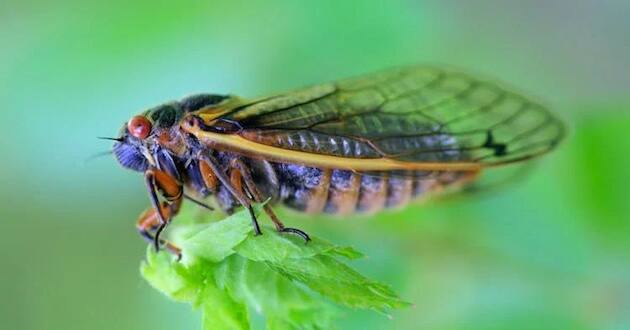Missouri is buzzing with sound of rare double brood of cicadas

Billions of cicadas will provide the soundtrack for the Missouri summer of 2024. Two broods emerged at the same time this year. This last happened in 1803 and won’t happen again for 221 years.
“It will be crazy,” said Tamra Reall, a University of Missouri Extension entomologist in Kansas City. Now that they have reached the Kansas City region, the march is on to far eastern Kansas in coming weeks.
Periodical cicadas have the longest known lifecycle of any insect. Broods are groups of cicadas that share the same emergence years. Broods receive a number listed as a Roman numeral. Brood XIII emerges only every 17 years, while Brood XIX emerges every 13 years. The last time these two particular broods emerged together was when Thomas Jefferson was president, decades before Missouri statehood. The next event will be in the year 2245
For the most part, most Missourians will experience only Brood XIX, the Great Southern Brood, which last appeared in Missouri in 2011. Those in northeastern Missouri near the Illinois border might see and hear both broods.
Cicada nymphs stay in the soil for 13 or 17 years, depending on their brood. They emerge when the soil warms to 64 degrees and dig their way out of the ground. They subscribe to the “safety in numbers” approach and emerge all at once. They climb trees, fenceposts or anything vertical before shedding their hard skins. Then they head to treetops to mate, lay their eggs and die within four to six weeks.
Expect to see cicadas after a spring rain, and expect to see a lot of them — as many as 1.5 million per acre. This creates a feeding frenzy for predators and litter so heavy that sidewalks and highways may need shoveling. The loud sound is from male cicadas as they send out their mating call, which can be as loud as a lawnmower and is unique to its species, Reall said. The synchronized male singing can be louder than a jet engine.
Cicadas, although loud and messy, are harmless to humans and their pet, and they don’t sting or bite. Real warns against using pesticides that will harm birds and beneficial insects such as butterflies, bees and moths. If there is concern about new trees or bushes, protect them with a loose cover of cheesecloth.
–Alan Goforth






